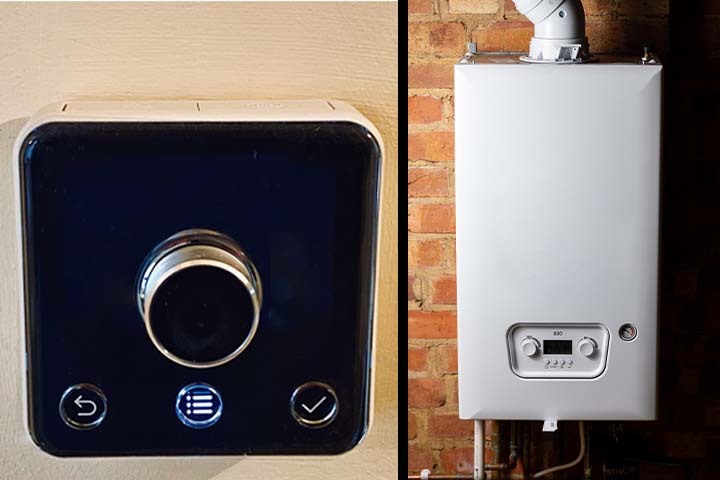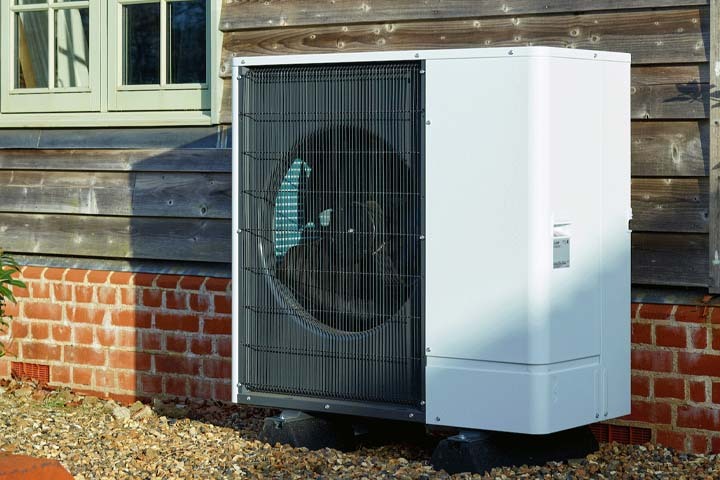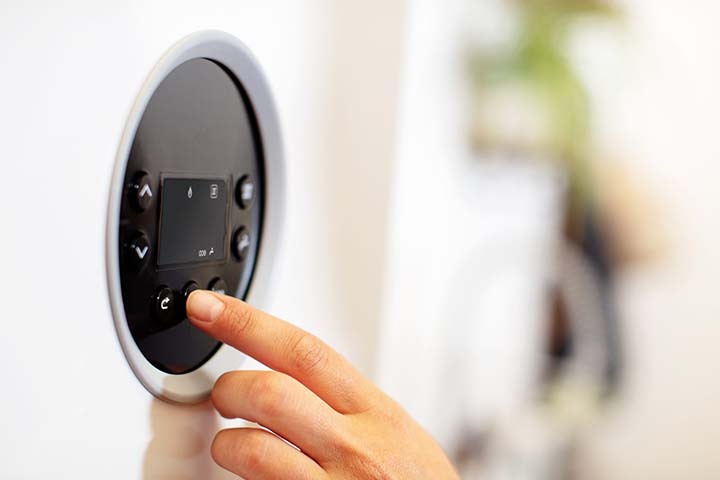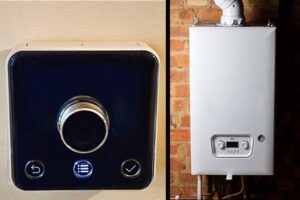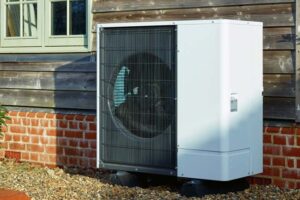Table of Contents
Boilers take quite a prominent position in our home today, assuming little more importance in keeping our houses warm than any appliance. When the winter starts creeping up on people, so does the cost factor of fitting a new boiler in place. If you live in the UK and are going to be wondering how you might finance this new cost in 2024, then you’re in luck! The cost of new condensing boilers in the UK can be pricey, but when you break down the factors, you will find the way.
From energy efficiency ratings, installation costs, and government grants, there is much you need to know. Whether you are upgrading an older unit or replacing one that is no longer efficient, knowing what factors affect these prices is a lot of help. Let’s explore everything that you need to consider about new boiler prices in the UK this year.
Factors Affecting Boiler Costs
A boiler in the UK can also be very expensive, depending on critical factors. In that case, some of these factors include the type of boiler chosen, which is what largely determines its cost. A combi boiler tends to be cheaper compared to the system or conventional model because it requires less installation work.
An important consideration is the size and capacity needed for your home. Bigger houses will require more powerful systems, which would again be costlier. Installation complexity is another cost influencer. Installation will be costlier if the existing system needs to be modified or even upgraded to accommodate a new boiler.
Location also plays its role in influencing the labour cost; installation fees tend to be higher in urban areas compared to rural. Along with this, there’s also the issue of brand reputation along with warranty; these add another dimension of price variability. Spending on brand names might not be a negligible expense but may certainly offer guaranteed long-term reliability and services.
Types of Boilers Available in the UK
When considering a new boiler, it is essential to know the types available in the UK. Each boiler type caters to different needs and home sizes.

1. Combi Boilers
Combi boilers are popular for their compact design. They provide instant hot water without needing a separate tank. This is ideal for smaller homes or flats where space is limited.
2. System Boilers
System boilers offer more power for larger households. They require a cylinder to store hot water but don’t need a cold-water tank. This makes them efficient while still delivering high performance.
3. Regular Boilers
Regular boilers or conventional models suit older properties with traditional heating systems. These often require both a hot water cylinder and an additional tank in the loft.
4. Biomass & Electric Boilers
Biomass and electric boilers are becoming more prevalent as eco-friendly alternatives. Biomass uses renewable resources like wood pellets, while electric options can be easier to install in urban areas lacking gas supply.
5. Condensing Boiler
Condensing boilers are highly preferred boilers. These boilers offer high energy efficiency and result in low heating costs. The UK Government is replacing all old boilers with the new condensing boilers.
Average Cost of a New Boiler Installation
A new boiler installation cost in the UK will vary with costs according to many factors. Generally, a standard system will cost anywhere between £1,500 and £3,000. These prices depend on the boiler type as well as the brand chosen.
Installation costs can also vary depending on specific needs within your home. For example, an oversized home would require more robust boilers or several components such as thermostats and controls. It is important to factor the purchase price as well as labour costs incurred in fitting the system in your house. Professional installers charge extra that could amount to a few hundred pounds on the final cost.
And then, of course, there are warranties and after-care; these have a very big impact on ensuring long-term efficiency and reliability of your heating system. Invest properly now; it will save you money later, as you end up requiring less repair work.
Boiler Type | Average Cost (GBP) |
Combi Boilers | £2,000-£3,500 |
System Boilers | £1,200-£10,000 |
Regular Boilers | £1200-£10,000 |
Biomass Boilers | £5,000-£21,000 |
Electric Boilers | £900-£2,500 |
Condensing Boilers | £500-£2,000 |
Additional Costs to Consider
Other costs you might need to account for when installing a new boiler include installation costs. Installation costs vary depending on how complicated your boiler system is and, therefore, are situational. With a condensing boiler of an older model, for example, this might mean conversion to an existing boiler system in order to insert this new unit, thereby increasing your price. Do not miss the offer that comes with a warranty and service plans. Extended warranties are good investments as they give security assurance but come with more upfront costs.
Furthermore, consider potential energy efficiency improvements. It could make a modern boiler work much more efficiently, whether it would be by improving insulation, or sometimes even smart thermostats that do incur the cost of further expenditure. In some parts of the UK, there is a disposal fee for old boilers and their products; it would be smart to factor these charges into your quotations with installers. These all go to the new boiler cost in the UK, which you would do well to anticipate.
Cost Comparison of New Boiler In UK (2021 - 2024)
As for the cost of new boiler in the UK, within the last few years, the cost has drastically changed. In 2021, average prices ranged between £500 and £3,500 on average. Brand choices and complexity of the system determined such costs.
Prices have gradually increased since 2023 because of rising material costs and inflation; homeowners may pay anywhere between £500 and £4,000 for similar boilers. Market trends are also directed by the transition towards energy-efficient models.
Going into 2024, it is essential to understand that government policies may also influence price structure. Energy efficiency standards are indeed getting tighter, meaning that it may cost more upfront but will have the consumer’s interest in mind when it saves them money on energy bills. All these developments help a homeowner plan better ahead for budgeting when considering new boiler installation.
Boiler Type | Average Cost (GBP) in 2021 | Average Cost (GBP) in 2024 |
Combi Boiler | £600-£1200 | £2,000-£3,500 |
System Boiler | £1000-£1500 | £1,200-£10,000 |
Regular Boiler | £400-£800 | £1200-£10,000 |
Biomass Boiler | £5000-£10000 | £5,000-£21,000 |
Electric Boiler | £500-£1000 | £900-£2,500 |
Condensing Boiler | £700-£1500 | £500-£2,000 |
New Boiler Installation Cost Comparison in UK (2021 - 2024)
When one thinks about installing a new boiler in the UK, he or she has to watch the trends from the years 2021 to 2024. Various aspects take precedence during this period such as issues of supply chains and rising demands for energy-efficient systems, which, therefore, push prices up.
The initial boiler installation costs throughout 2021 usually ranged between £1,500 and £3,500. In 2023, this then had risen further due to the manufacturer’s increased price revision as material costs continued to rise. Currently in 2024, prices for a typical installation range between £1,600 and £4,000 depending on the boiler type and extent of installation. Whilst they are cheaper in comparison at first, Combi boilers aren’t always cheaper over a longer period than System or Regular boilers. All these changes assist in helping the buying potential budget efficiently and also explore options for efficiency and reliability with heating solutions.
Boiler Type | Average Installation Cost (2021) | Average Installation Cost (2024) |
Combi Boilers | £1,500-£2,500 | £1,800-£3,000 |
System Boilers | £2,000-£3,500 | £2,500-£4,000 |
Regular Boilers | £1,000-£2,000 | £1,200-£2,500 |
Biomass Boilers | £4,000-£8,000 | £5,000-£10,000 |
Electric Boilers | £1,000-£2,000 | £1,200-£2,500 |
Condensing Boilers | £1,500-£2,500 | £1,800-£3,000 |
Government Grants and Schemes for Boiler Replacement
The UK government has its free boiler scheme. The government spends a lot of money on boiler replacement that helps to increase the energy efficiency in houses, thus reducing carbon emissions. Among them, ECO is an important scheme; here, the energy companies are dedicated to working for low-income families by helping them to have improved heating systems. In return, eligible applicants receive funding towards a boiler replacement at little or no cost. In other words, this scheme targets mainly the vulnerable families so that absolutely everybody can enjoy free boiler grants.
Other local schemes provide further grants, so look at the local council for the latest programmes which are available in your location. By staying updated about these funding options, you will save lots of money while generally contributing to achieve environmental goals. With such schemes, you will get guaranteed heating upgrades and at the same time be part of collective initiatives toward improving sustainability within your community.
Free Boiler Grants – ECO4 Scheme
The ECO4 Scheme is offered by the government that facilitates the replacement of old, out-dated boilers in houses of low-income families. It includes all such old units like back boilers, tank boilers, storage heaters, etc. This offers free boiler grants to those who meet certain criteria. This scheme deals with the improvement of energy efficiency and cutting heating costs.
Some of the usual benefits applicants receive to qualify include eligibility benefits. The application process is relatively simple and makes it possible for many low-income families to gain access to support that they would otherwise never know about.
Once they have been approved as eligible, homeowners can get this boiler installed. The advantage it brings to homes is increased comfort however, at the same time it benefits the environment through carbon reductions. Since the installation of this boiler is free, it will also alleviate some of the other burdens experienced by lowering the prices of affording the warmth of one’s home during particularly cold periods. It thus remains an opportunity that should be considered for all eligible homes within the UK.
Who Is Eligible for Free Boiler
In order to be eligible for this free boiler grant under the ECO4 scheme, one must meet the following criteria;
- Must be a homeowner or a private tenant.
- Previously had a boiler installed before 2005 or no boiler. The previously installed boiler must be non-condensing, (back boiler, tank boiler, storage heater, etc.)
- Must be receiving one of the government’s eligibility benefits.
- Property must have EPC rating lower than “D” or below “D”
- Property must have a Mains gas connection/metre.
Benefits of Applying for Free Boiler Grant Under ECO4 Scheme
The ECO4 scheme to homeowners has many benefits concerning the free boiler grant. Some of these advantages include energy efficiency. A brand-new boiler consumes 100% less energy, which simply translates to reduced utility bills in real terms.
This also caters for low-income and vulnerable households. Heating solutions are provided without burdening one’s pocket. Another significant feature is environmental impact. In replacing older models with modern units, one contributes to reduced carbon emissions and has a step towards sustainability. Qualifying individuals incur no upfront costs, an attractive option to further comfort while addressing budget constraints. It typically requires little or no paperwork and professional assistance, and thus gives peace of mind while you ponder your alternatives to enhance the warmth in your home.
Tips for Choosing the Right Boiler and Installer
For your home, the appropriate boiler choice is very important because it directly influences efficiency and comfort. Assess your heating needs by the size of your property and hot water needs. The function of different models of boilers, for instance, is specific, and there are combi and system boilers whose lifestyles are matched to see which one best suits you. Other considerations are efficiency ratings, a higher efficiency model, though expensive to begin with, might prove worthwhile in the long run by using less energy.
Do not forget the importance of the right installation person. Check out their credentials and the general customer review to confirm that they have satisfactory documents. Enquire further with the installers concerning warranties; in case the installers are well established, they are likely to give a guarantee on their work. Compare your prices with various installers on different quotes so that you can choose the best at minimal cost without lowering the standards of installation. This process will help one emerge with the best situation by ensuring proper installation while letting the standards settle at a very good level.
Conclusion
There are various aspects concerning new boilers in the UK. From the type of boiler to installation costs and possible government grants, you have to weigh your options effectively. What affects boiler cost can help you make a better judgement. There are types of boilers available in order to meet different needs and budgets. It is not just a matter of whether the initial costs are quite hefty; it can involve additional subsequent costs for maintenance or an upgrading of a system, for example. Clarity in such matters ensures you will never be surprised by them.
The direct cost savings can be taken into account, and besides these are long-term efficiency benefits from the investment. The right boiler choice is important, but the choice of installer who properly understands your individual needs and the constraints imposed by local regulations is far more crucial. All time spent researching will be rewarded-in comfort at home and peace of mind over your finances.
Frequently Asked Questions
The price of the new boiler ranges between £1,500 and £3,000, and even it depends on the type of boiler, the boiler size, and the level of efficiency as well as the installation. What will determine the new boiler price?
The new boiler cost varies extensively on a lot of factors: the type of boiler, its size and efficiency, intrusiveness of the installation, your location, and many more additional features or upgrades that you are going to add to your boiler.
There are three major types that include combination boilers, system boilers, and conventional boilers. Combination boilers are the most popular ones because they can be used both as a central heating source and to provide domestic hot water. System boilers have to have a hot-water cylinder, but conventional boilers need to have entirely separated heating and hot-water systems.
Yes, the government has provided a sufficient amount of grants for a new boiler. In the Boiler Upgrade Scheme, there is money set aside which is dispersed to homeowners and landlords as they shift from their existing gas or oil boilers to a more efficient heat pump at £5,000. There are many grants under ECO schemes.


